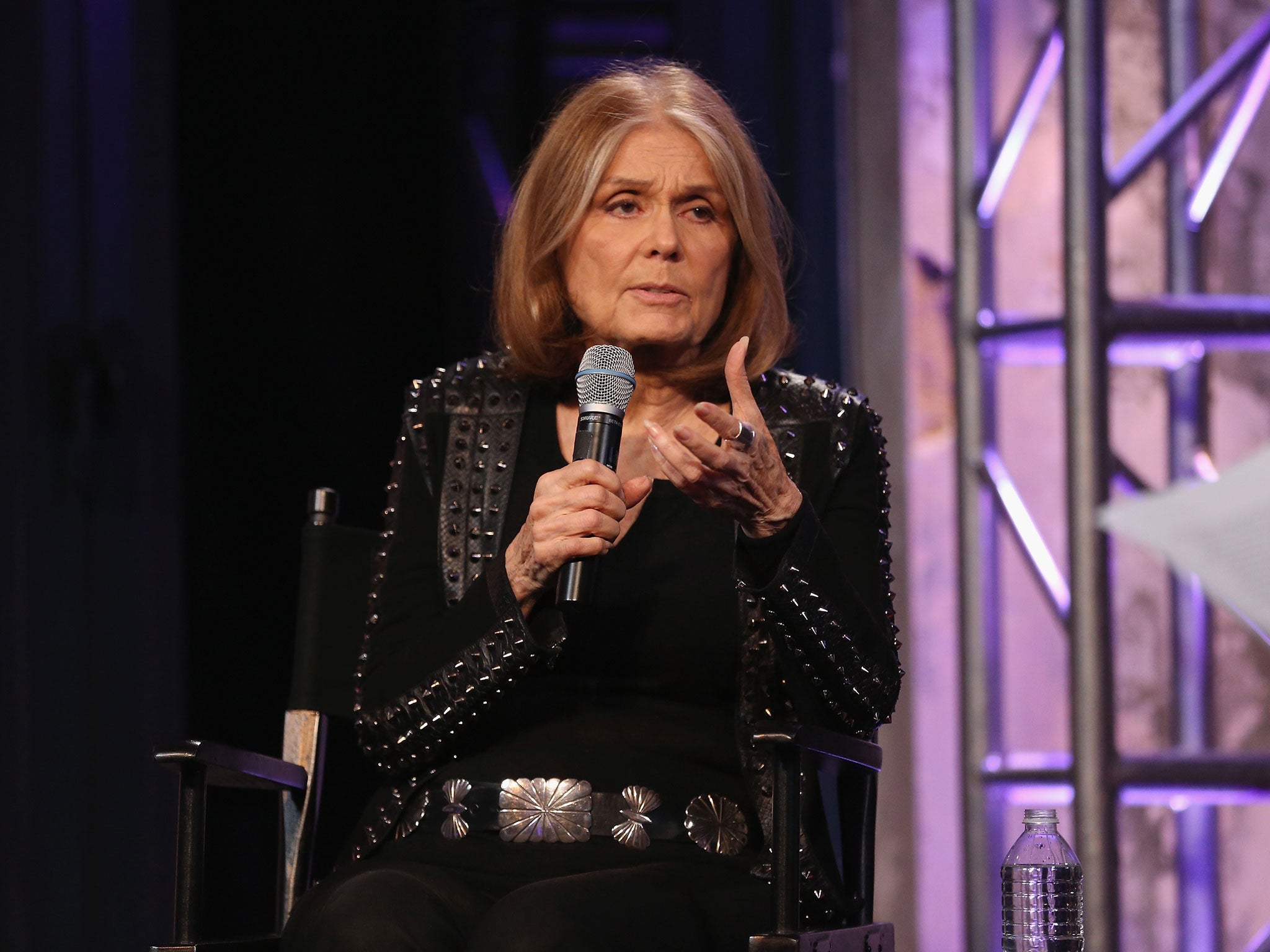Gloria Steinem: My Life on the Road by Gloria Steinem, book review
The author and journalist's memoir addresses the personal and the political – up to a point

Your support helps us to tell the story
From reproductive rights to climate change to Big Tech, The Independent is on the ground when the story is developing. Whether it's investigating the financials of Elon Musk's pro-Trump PAC or producing our latest documentary, 'The A Word', which shines a light on the American women fighting for reproductive rights, we know how important it is to parse out the facts from the messaging.
At such a critical moment in US history, we need reporters on the ground. Your donation allows us to keep sending journalists to speak to both sides of the story.
The Independent is trusted by Americans across the entire political spectrum. And unlike many other quality news outlets, we choose not to lock Americans out of our reporting and analysis with paywalls. We believe quality journalism should be available to everyone, paid for by those who can afford it.
Your support makes all the difference.One of the architects and celebrities of "second wave" American feminism (that which came to prominence in the early 1960s) writes in this memoir not only of her experiences in public speaking and campaigning, but also of the unconventional background that formed her determined and adventurous personality. This much-garlanded author, journalist and thinker did not go to school: instead, her family passed her early years in near-constant transit at the behest of her impulsive, itinerant, vaguely shady father. After her parents separated, Steinem took responsibility for the care of her mother, who suffered with depression and addiction. It doesn't take a degree in psychology to note some of the effects upon the young Steinem of these demanding parental figures. Steinem's father was in some ways the quintessential irresponsible adventurer, her mother the fraught and disappointed homemaker. Steinem became the former with an impassioned interest in the condition of the latter.
While this intimate biographical material perhaps constitutes the book's strongest writing, inevitably it's Steinem's political recollections and observations that will draw the greatest attention. She offers a spirited account of the exciting early days of a movement, some gently pointed critique of her detractors, and a polite riposte to the frequent contention that 20th century feminism disproportionately favoured white and middle-class women. Instead, Steinem portrays a diverse, inclusive and open movement for general social change, which made significant inroads into the political mainstream – including the vast, completely fascinating and widely forgotten National Women's Conference of 1977, which drew state delegations representative of the make-up of each state, and as such, Steinem writes, "was probably the most geographically, racially and economically representative body this nation has ever seen".
Current feminism can seem hopelessly mired in jargon and internal strife. Such is the level of background noise about "microaggressions", "tone policing", "mansplaining" and "trigger warnings" that you would be forgiven for thinking that the major rights issues that specifically affect the women of the world have been entirely sorted out, leaving us all to use our intellectual energies up on minutiae. Of course, there's also the fact that such spats are intentionally played up by a news media in constant search of divisive comment-bait. Against this fraught backdrop, the warmth and inclusiveness that characterises Steinem's accounts of the nascent activism of the early 60s is at once heartening and somewhat enviable. As she lectured on women's rights around the United States in the company of African American feminist and child welfare activist Dorothy Pitman Hughes, writes Steinem, "we discovered the intensity of interest in the simple idea that each person's shared humanity far outweighed any label by group of birth, whether sex, race, class, sexuality, ethnicity, religious heritage or anything else." Not an attitude one frequently encounters in today's shouty blogosphere.
Steinem also renders her vision of American compellingly immediate by drawing on conversations not only with fellow activists and famous names, but with the flight attendants and taxi drivers who have ferried her around on her travels.
Steinem can be more diligent than witty as a storyteller, and is a touch prone to hippy-dippiness – ("If I could, I would leave an open space for your story on every page," she coos to the reader in the book's first chapter). Disappointingly for gossips, she isn't as open about her later personal life as she is about her childhood. But this geographical and intellectual adventuress here proves a thoughtful analyst of her own experiences, mistakes included; and an alert, inspiring chronicler of the many Americas she's seen.
Oneworld, £14.99. Order at £13.99 inc. p&p from the Independent Bookshop
Join our commenting forum
Join thought-provoking conversations, follow other Independent readers and see their replies
0Comments